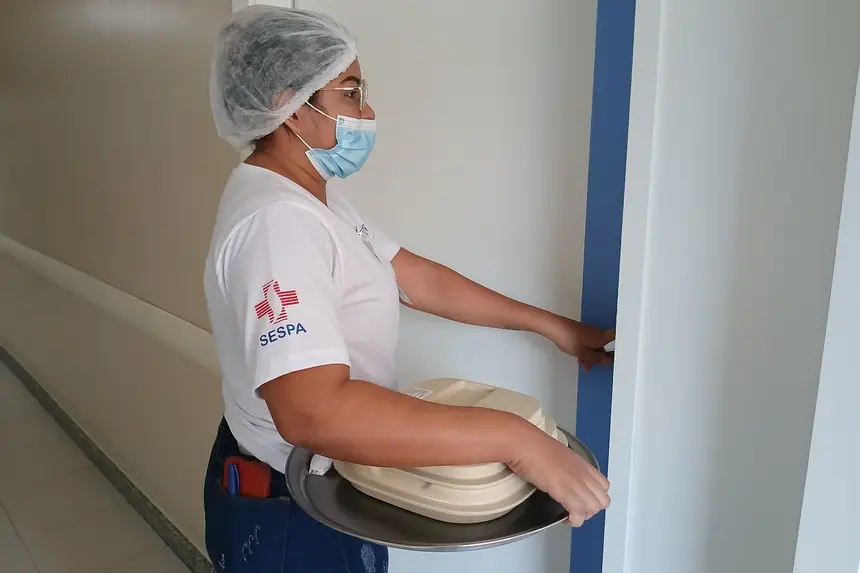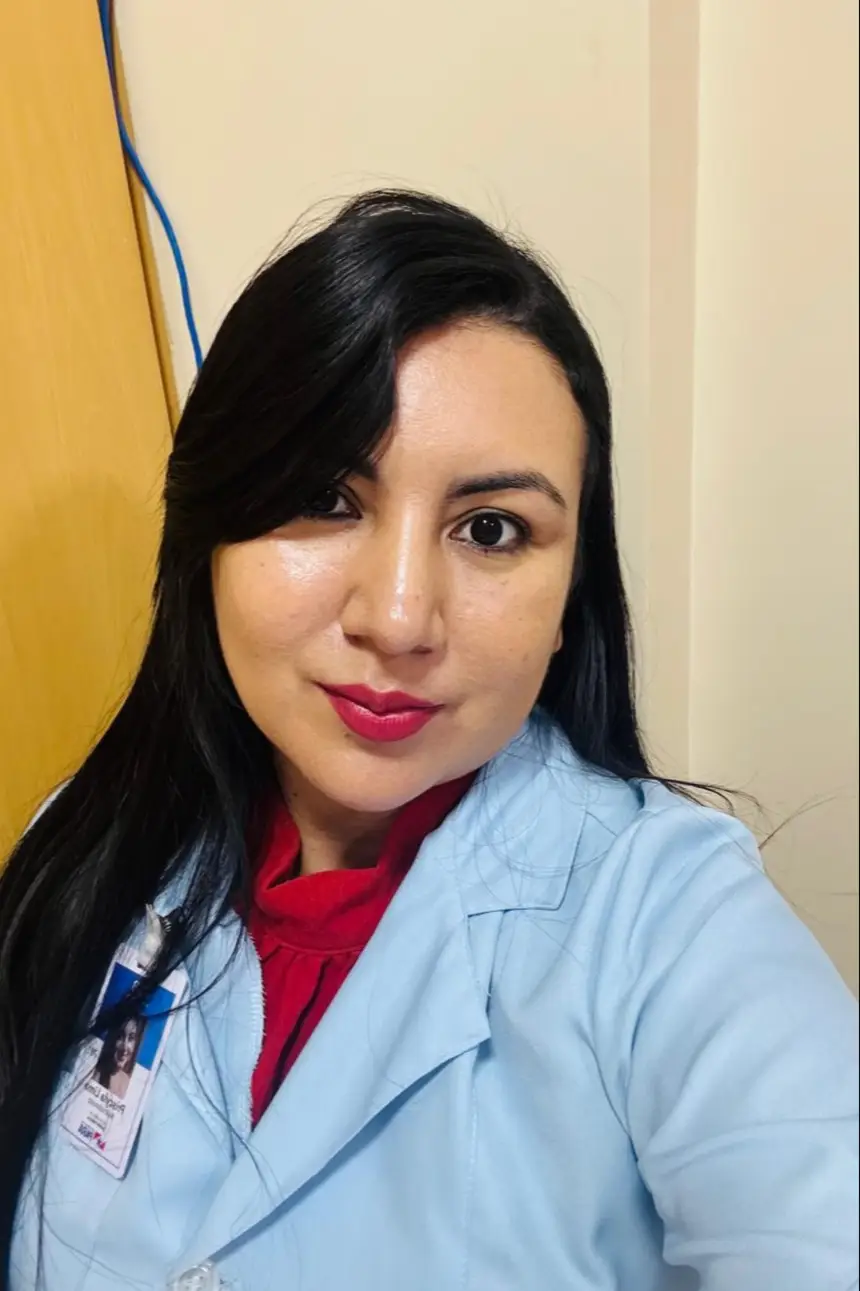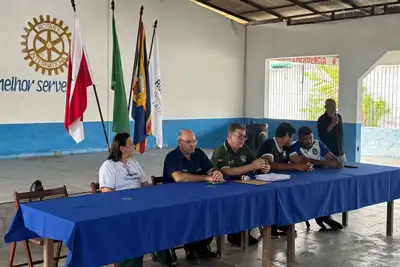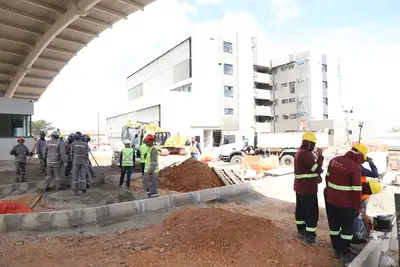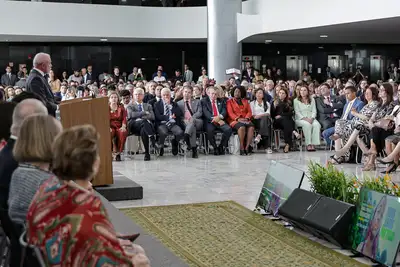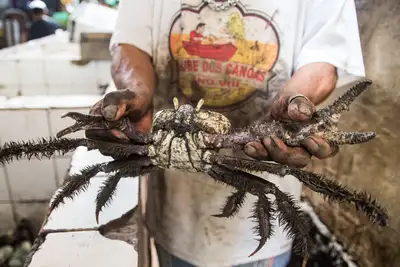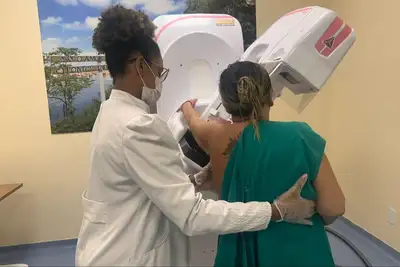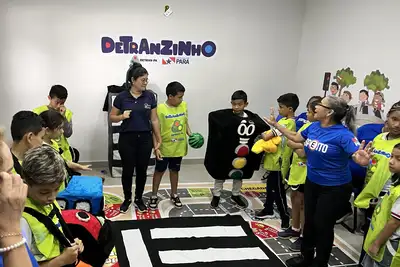HJB highlights that regional cuisine can be an ally in the recovery and well-being of patients
Patients had the opportunity to savor fish in tucupi, while the staff could taste the traditional maniçoba
On this Friday (25), the Jean Bitar Hospital (HJB), in Belém, brought the authentic flavors of the Amazon region to the tables of patients and staff. The initiative was conceived and executed by the Nutrition and Dietetics Service (SND), in partnership with the Humanization Working Group (GTH), aiming to integrate the traditional regional seasoning into hospital food without compromising health.
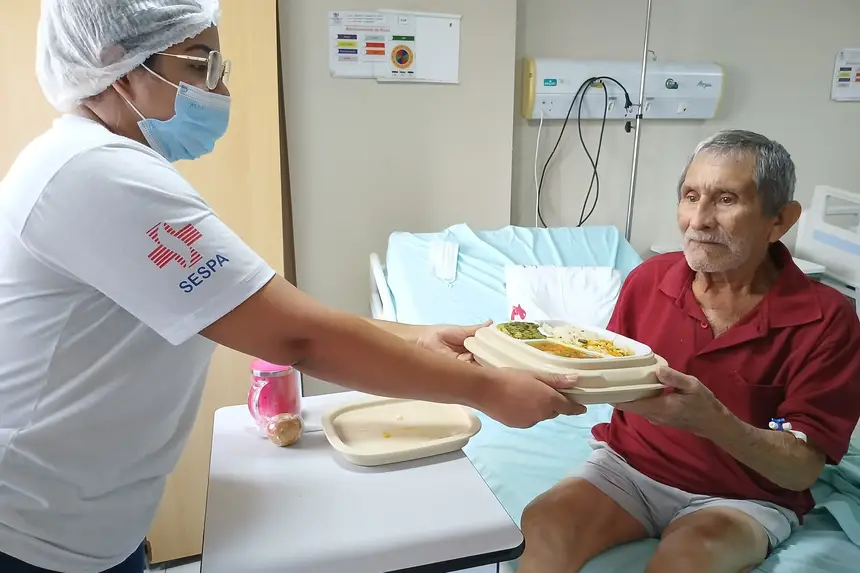
“I was raised eating fish, as in my hometown the typical food is this, with plenty of it. The service here at the hospital has been very good, I am well served at meals, and now with three foods I like, fish, tucupi, and jambu,” said the grateful patient, Benedito da Costa, 76 years old, retired, from the agropesqueira community Nova Olinda, in the municipality of Augusto Corrêa, which is 258 km from Belém.
The nutritionist Priscyla Lima, a specialist in clinical nutrition at HJB, highlighted the importance of this initiative, which not only brings patients closer to local culture but also promotes healthy eating, adapted to each individual's needs.
Regional Dishes and Nutritional Care on the Day of Pará Cuisine
On the menu prepared for the occasion, patients had the opportunity to savor fish in tucupi, while staff could taste the traditional maniçoba. These dishes, typical of Pará cuisine, were carefully adapted to the conditions of the hospital diet.
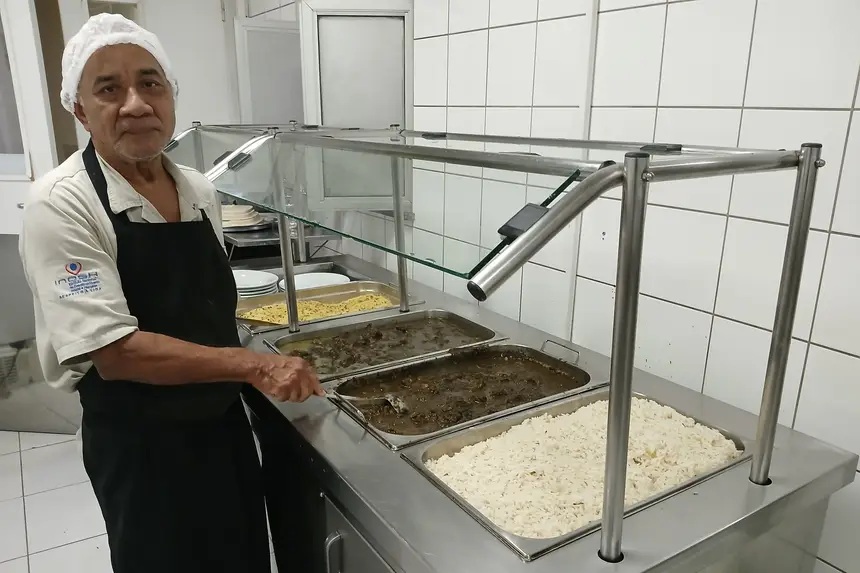
“The maniçoba was prepared for the staff with the necessary adaptation, aiming for a balance between flavor and health. The fish in tucupi was served to patients in a light manner, respecting the characteristics and specific nutritional needs of each diet,” explained Priscyla Lima.
Can Regional Cuisine Be Healthy?
The nutritionist stated that it is possible to incorporate regional cuisine into the diets of hospitalized patients, but with specific adjustments. “Regional cuisine can indeed be part of a healthy diet, as long as it is adapted according to each patient's needs and the pathology they present,” she explained.
Regional Ingredients That Are Allies of Health
The nutritionist took the opportunity to highlight some typical ingredients from the Amazon that are great allies of health and deserve to be present in Pará meals. Among them are jambu, regional fruits, and chicory, all recognized for their health benefits.
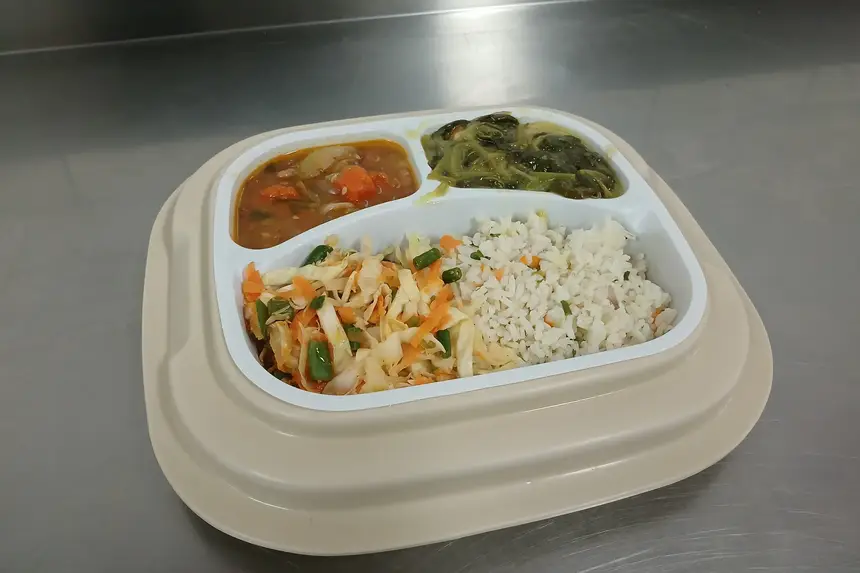
Is There Such a Thing as 'Reimoso' Food?
During the event, the issue of “reimoso” foods was also addressed, a popular expression referring to those foods that some people believe can cause inflammation or hinder healing, especially after surgeries or injuries. However, science does not have a consensus on this classification, and the reaction to these foods can vary from person to person.
Priscyla clarified that there is no scientific evidence that these foods, such as shrimp, jambu, and fish, are indeed harmful to health or healing. “These beliefs are based on cultural taboos, but there is no scientific evidence proving that these foods cause harm to health. The important thing is to demystify these ideas and guide patients in the best possible way,” commented Priscyla.
Green Kitchen
For the seventh consecutive year, the Jean Bitar Hospital has received the Green Kitchen seal, awarded by the USP Environmental Research Foundation (Fupam), in recognition of the quality standard in the production of healthy food.
Service: The Jean Bitar Hospital is part of the public health network of the Government of Pará and is managed by the National Institute of Social and Human Development (INDSH), in partnership with the State Department of Public Health (Sespa).
HJB provides assistance in medium and high complexity in the outpatient and hospital areas for transgender users, and in medical and surgical clinics for metabolic and gastrointestinal diseases. It is located at Rua Cônego Jerônimo Pimentel, No. 543, in the Umarizal neighborhood, in Belém. For more information: (091) 3073-6610 or (091) 3108-6161.
Text: Marcelo Zeno/ Ascom HJB


